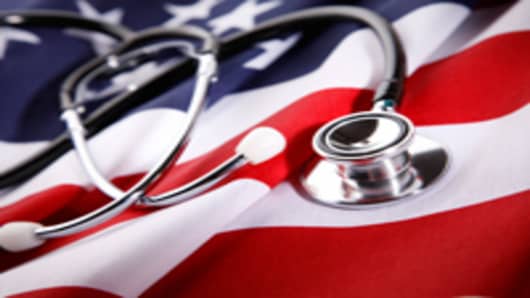Pharmaceutical giants’ profits could take a "double-dip" hit next year from patent expirations on blockbuster drugs and President Barack Obama’s healthcare reforms, according to a report from CreditSights, a credit market research firm.
Blockbuster drugs which will lose patent protection next year include Bristol-Myers Squibb’s Plavix—2010’s biggest selling drug in the US—and Merck’s Singulair.
Patent expiries are set to cost pharmaceutical firms $54 billion in sales between 2011 and 2012, with the cost reaching over $255 billion by 2016, according to EvaluatePharma, a research firm.
“We could see a double-dip effect in 2012, due to lower sales and earnings from loss of exclusivity, and healthcare reform costs that have not yet been reduced,” said Diya Sawhny senior pharmaceuticals analyst at CreditSights.
“A significant slate of prescription products lose patent protection in 2011 and 2012, and their sales will decline,” she added.
Obama’s healthcare reforms include increases to the sales taxes pharmaceutical firms pay for their drugs used in government health programs. Those taxes are based on prior year sales, so firms with blockbusters going off-patent in 2012 may face both higher taxes and a drop-off in sales.
US Healthcare Reforms
Obama’s Affordable Care Act was enacted in March 2010 with the intention of improving healthcare for the uninsured. Changes include expanding the number of people who are eligible for Medicaid , the state-run insurance program aimed at low-income individuals, with 16 million extra enrollees expected by 2019.
A pre-existing tax on prescription drugs sold to Medicaid recipients was increased from 15.1 percent to 23.1 percent, and was expanded to include drugs given in care organizations.
Between 2011 and 2018, pharmaceutical firms must pay an additional federal tax based on their market share of sales to government health programs. The cost of the tax to the pharmaceutical sector is fixed by law, and rises from $2.5 billion in 2011 to $3 billion from 2012 until 2016.
Big Pharmas Hit
According to Sawhny, Bristol-Myers Squibb and Eli Lilly are likely to be 2012’s worst-hit big pharmas, due to their heavy exposure to government programs.
Around one-third (34 percent in 2010) of Bristol-Myers’s revenue is derived from its blood thinning drug Plavix, which is heavily supplied to government programs. The patent on Plavix expires next year.
In its third-quarter earnings, Bristol-Myers estimated that healthcare reform changes would reduce its 2011 earnings per share by $0.23, equating to around 9 percent of its estimated earnings.
Similarly, government programs are a significant purchaser of Lilly’s antipsychotic, Zyprexa. The blockbuster drug went off-patent in October this year.
Over the first three quarters of 2011, Lilly’s earnings per share fell by $0.23 as a result of healthcare reforms, reducing pre-tax revenue by $328.8 million.
However, Sawhny said Abbott and Johnson & Johnson would be relatively sheltered from reform costs, due to their greater diversification into non-pharmaceutical areas such as consumer products and devices.
Big pharma sales may be boosted in 2014 when reforms increasing the number of people eligible for Medicaid come into effect. However, Sawhny said gains are likely to be “relatively modest”, as the new recipients will probably be at the "younger end and healthier end of the spectrum."
Pharmaceutical stocks have seen strong demand over the past few months, as defensive sectors have benefited from risk-aversion due to the uncertain economic climate in both the U.S. and Europe.
On Dec. 27, the NYSE Arca Pharmaceutical Index was up 8.64 percent year-to-date at 333.44 points .



